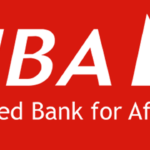Data from the Nigerian Exchange has shown that despite the scorching economic environment, listed companies have paid a combined N215.75 billion in interim dividends for the 2024 financial year.
The data also revealed that big lenders alone gave out N171.03 billion, which represents 79.53 per cent of the total N215.75 billion, making the banking sector the most lucrative in Nigeria.
For the first time in its history, United Bank for Africa Plc (UBA) recommended an interim dividend of N2.00 per ordinary share of N0.50 each payout for half year (H1) ended June 30, 2024.
The board proposed an interim dividend of N2.00 per share as against N0.50 per share paid in H1 2023, translating to a total payout of N68.4 billion and a 21.6 per cent dividend payout ratio, one of the highest in the industry.
- Insecurity: Ribadu commends Military, police, DSS, others
- FG strengthens move for Simon Ekpa’s extradition
The 7.8 per cent dividend yield ranked UBA as the highest among other listed financial institutions that have declared interim dividend payouts to shareholders on the Exchange.
GTCO Holdings paid out N29.4 billion in interim dividends for H1 2024, marking a 100 per cent year-on-year growth from the N14.7 billion distributed for H1 2023.
Zenith Bank also paid out a record interim dividend of N31.4 billion for H1 2024, marking a 100 per cent year-on-year growth from the N15.7 billion paid out as an interim dividend for H1 2023.
Despite posting a net income of N116.4 billion for H1 2024, Stanbic IBTC paid an interim dividend of N25.9 billion, marking a dividend payout ratio of 22.2%, the highest among the banks.
Access Holdings distributed N16 billion in interim dividends for H1 2024, representing a 50 per cent growth from the N10.7 billion distributed in the corresponding period in 2023.
FBN Holdings also distributed N14.4 billion in interim dividends for H1 2024, a significant improvement considering the bank didn’t pay out any interim dividends for the first half of 2023.
However, no consumer goods firm paid interim dividends as they are reeling from huge losses caused by foreign exchange revaluation losses.
This sector is the hardest hit by the abrupt devaluation of the currency that stoked imported inflation. Operators in the sector have capitulated to geopolitical tension in Eastern Europe, where the war between Russia and Ukraine has ballooned the price of grains that are the raw material components of some firms.
Prices of raw sugar, sorghum, barley, and cocoa have skyrocketed, aggravating rising input costs, while an incessant hike in interest rates to tame stubborn inflation led to a spike in borrowing costs, which reduces overall profit.
Outside of the banks, many of the manufacturers, most especially the consumer goods ones, have negative shareholders’ funds, and to that extent, they can’t pay interim dividends,” Abiola Rasaq, an equity research analyst, said.
Banks are the best dividend-paying stocks, which makes them the most attractive stocks on the NGXASI index, riding on the wings of favourable monetary policies as a higher interest rate environment bolstered the net interest income (NIM).

 Join Daily Trust WhatsApp Community For Quick Access To News and Happenings Around You.
Join Daily Trust WhatsApp Community For Quick Access To News and Happenings Around You.